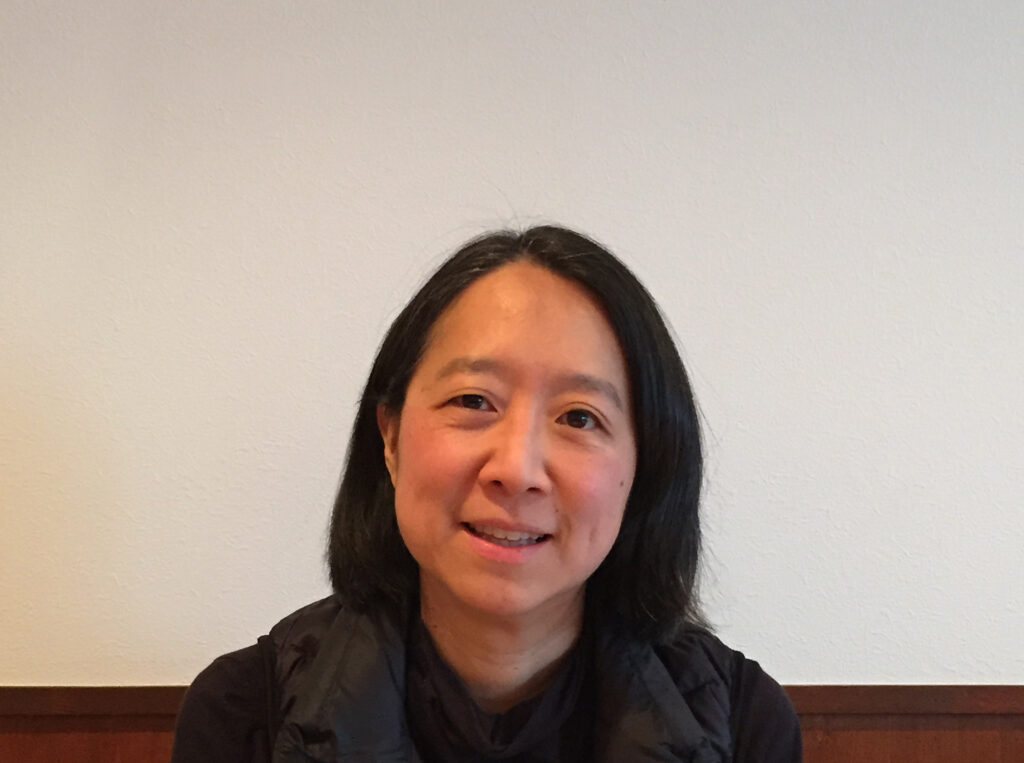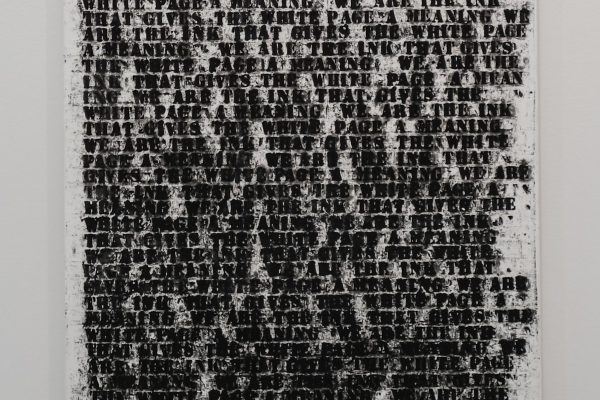Editors' Note: This essay is one of a group of essays on Race and the Poetic Avant-Garde. Read the rest.
In the six months since we began to develop this Boston Review forum on race and the poetic avant-garde, an open discussion of the racial politics of the experimental poetry world has, finally—slowly and painfully—begun to happen. But even as late as 2013, when I was completing my book, Thinking Its Presence: Form, Race and Subjectivity in Contemporary Asian American Poetry (2013), speaking about what Harryette Mullen dubbed almost two decades ago as “aesthetic apartheid” in her essay "Poetry and Identity" seemed difficult, indeed precarious, personally and, more so, professionally. We were supposedly living in a post-race era and everyone knew that class, not race, was the real problem. Smart academics had told us so. Multiculturalism and “identity politics” had already triumphed—to the detriment of poetry—and to bring up the issue of race seemed to come across as churlish, entitled. To utter the “r” word would make one’s criticism or poetry “about outsiderness too outside the outlining norms,” in Prageeta Sharma’s words. “It made you look ungrateful.”
To speak about race and so-called avant-garde writing is not to beg for token inclusion at the liberal or hipster multicultural food court.
If one acted like an “angry minority”—especially if one dared to call out powerful gatekeepers in academia, the poetry world, and the world of arts and letters—one risked not being published in journals and anthologies, not being invited to conferences, and not securing tenure-track jobs or other forms of professional and economic recognition. It was all right to say in a general way that certain minority poets had been overlooked in the archives or in the canon but to name actual critics, poetry professors, awards judges, book and journal editors, players in professional organizations, and anthologists who had brought their own unexamined racial assumptions to their discussions of poetry and poetics and to their decisions about who would be included and rewarded for writing “real” poetry, was verboten. Those conversations were only whispered privately among poets of color.
Except for a few lone voices in the past few decades (Mullen, Amiri Baraka, and John Yau immediately come to mind)—voices that were either ignored or shot down—very few poets and virtually no critics dared to speak explicitly about the exclusions, tokenism, and double standards used to judge poems by writers of color in the “avant” world. Poems by minority poets are almost always judged on the basis of their thematic (sociological, ethnographic) content in the “traditional” or “mainstream” poetry world and rarely on their formal or aesthetic structures, properties, modes—in other words, what makes poetry poetry and not a memoir or treatise.
But the flipside of the same coin is true in the world of “innovative” poetry and poetics, where the “absence” of obvious racial identity is to be applauded—for not exhibiting the hallmarks of “bad” poetry” (read: “identity poetry” [read: "minority poetry”])— and this criterion, too, is content-based, albeit in negative form. A poem without any overt ethnic or racial markers is assumed to be racially “unmarked.” Little or no attention is paid to how poetic subjectivity, which overlaps with but is not limited to racial subjectivity, might inhere in a poem’s language and formal structures—in what is unsaid or unspoken at the level of “content” but manifested through aesthetic (poetic) means.
Minority poets are supposed to be happy to be included at all—as mascots or tokens—and had, and have, little choice but to yearn for “the towardness . . . as though it were inclusion” (Sharma's words). This is the best liberal multiculturalism can offer.
While I am heartened by the fact that in 2015 minority poets such as Cathy Park Hong are explicitly addressing the whiteness of the avant-garde, two troubling facts persist: 1) the relative public silence from white poets and poetry critics on this issue, and 2) the absence of a larger conversation that needs to be had by poets and critics of all races and ethnicities about the assumptions—racialized and other—that underlie and structure fundamental categories of poetry and poetics, such as the notion of the “universal” poetic speaker, the idea of “difficulty” and abstraction in poetry, literary tropes, the link between formal structures and social and historical contexts—to name just a few.
• • •
To speak about aesthetic apartheid is not to be concerned with the individual motives (well-meaningness) of individual actors, as Lyn Hejinian points out in her essay in this forum, or to accuse individuals of bring “racist.” It is, instead, to say that ideologies, institutional structures, and ingrained patterns of thought, especially if unexamined, come to have a life of their own. Did one individual or even a group of individuals create the situation in which, in David Lloyd’s words in his contribution to this forum, “whiteness is . . . the formal subject that lays claim to a universally representative position: that of the human as identical to itself”? No, but it was an accretion of the power of this idea over time and its reinforcement by countless individuals and structures of power that led to its unmarked status as normative and self-evident—an idea that undergirds our seemingly innocuous discussions of, say, the “I” in particular poems. This pronoun can be read as signifying a universal poetic speaker in poems by those who are thought of as racially “unmarked,” but universality never obtains for the “I” in a poem by an Asian American female poet.
The “sheer, formal abstractness of identity constitutes whiteness,” as Lloyd puts it, so that the dirty word “identity politics” does not pertain to white identity (a term that sounds foreign to us, a catachresis of sorts) or white poetry. Robert Creeley or Ron Silliman do not write “identity poetry,” while Langston Hughes and Marilyn Chin obviously do. “Abstract,” “difficult,” “rigorous” poetry—”real” poetry—is racially “unmarked” poetry.
These presuppositions also influence our writing of literary historical narratives so that in our discussions of the Beat movement, Ted Joans, Bob Kaufmann, and Amiri Baraka have either been erased or relegated to the margins. The same is true with Erica Hunt, Lorenzo Thomas, Ted Pearson, Mei-mei Berssenbrugge, David Henderson, and Harryette Mullen in our retrospective snapshot of Language Poetry. And it is as much the case with Conceptual Writing as it is with High Modernism. The linkages between Yone Noguchi and Ezra Pound, between Jose Garcia Villa and Edith Sitwell, between Amiri Baraka and Ed Dorn (between Baraka and Jack Spicer, between Baraka and Frank O’Hara, and on and on) are forgotten or treated as incidental curiosities.
To speak about race and so-called avant-garde writing is not to beg for token inclusion at the liberal or hipster multicultural food court (hipsters being white liberals with edgier clothes). It is also not to demand the Procrustean choice between race or class—as if these two things were ever separable in the American context—in discussions of poetry. To those poetry critics who claim that “it is easier . . . to speak frankly today about race or gender than to disclose publicly the source of one’s income or net worth,” as Daniel Tiffany did in a recent Boston Review forum on class, I would reply that, just as endless discussions about “family values” do not mean that anyone is actually addressing the needs of actual families or children, so discussions of race almost never address the lived reality of race and racism nor confront unflinchingly and truthfully, without sentimental breast-beating, the constitutive role of race in centuries of American history—up to and including the present moment. Poetry is not de-linked from society. And criticism, as Edward Said reminds us, “is always situated.”
The poets and poet-critics in this forum open the door to a much needed and wider discussion about not just minority poetry but all of American (and English-language) poetry. It is time to examine the assumptions, suppositions, and concepts that constitute the foundations of our republic of poetry—and the ideologies and power structures that keep them in place.








